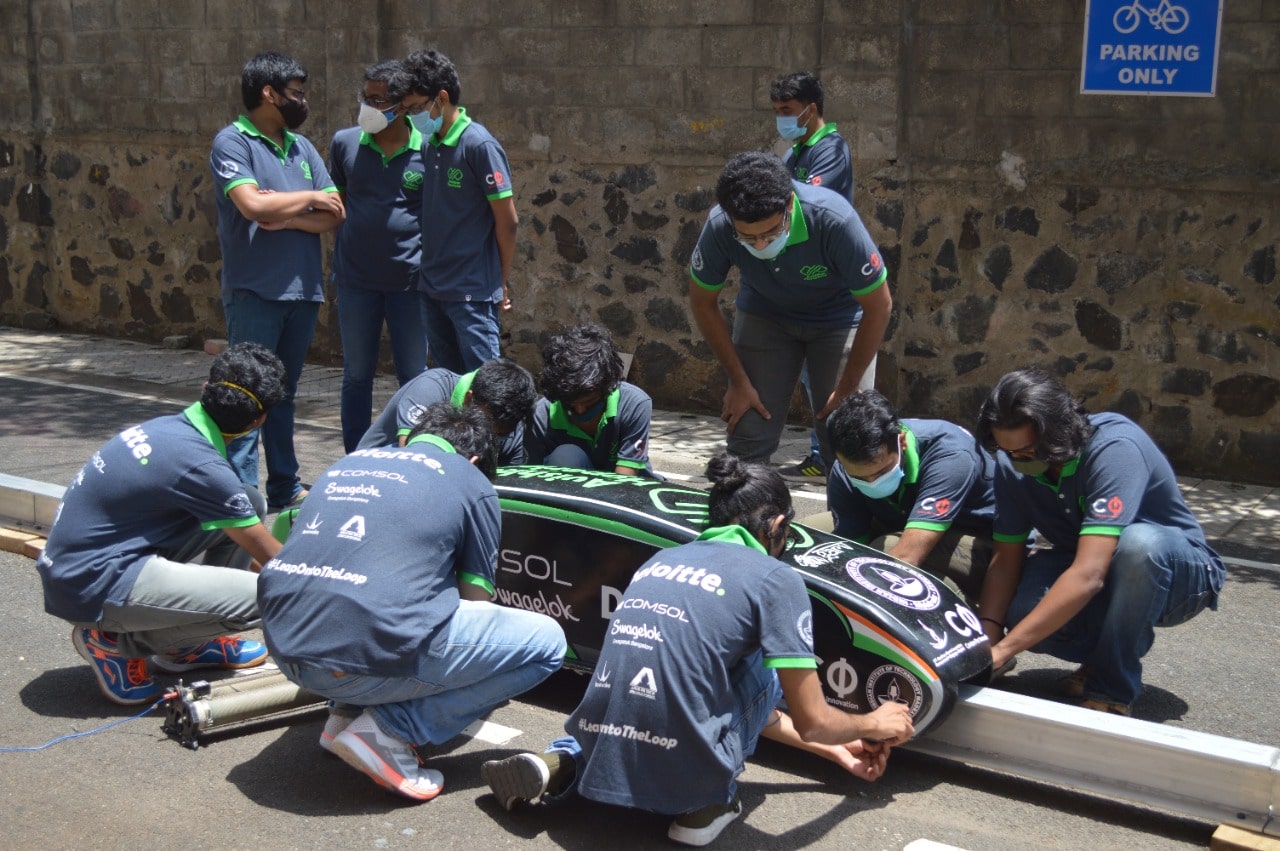
IIT Madras gets Funding for Hyperloop Pod: India Emerging as World Leader?
Team Avishkar, the IIT Madras students team that is working on hyperloop pod, a futuristic high speed long distance mode of public transport is on cloud nine. They’ve received two major funding for their research. It began with L&T Technology Services which supported them with an undisclosed significant contribution and expertise to fund the research project. Soon the Indian Railways too followed suit with a 8-crore-rupee funding to fast track the research and testing.
Excited about the development, Yash Gautam, a Team Lead told tellmystory.in “We can now hit the ground with these first sets of funding. This is their core domain and this gesture also validates our concept, gives us lots of confidence.”
Hyperloop Pod could revolutionise long distance public transport as it aims at a speed of 1200 KM an hour. The pod would travel inside a vacuum tube in high speed, levitating or floating on a magnetic field. Explaining its form, Saksham Sharma, the Business Head said “The pod is like a metro travelling inside a vacuum tube. Since the air resistance is very minimal the it will be able to achieve very high speeds.” Vibhor Jain, another Team Lead added ” It will float and be totally contactless. It will compete with the speed of airplanes. The wheels would be there only for emergency purposes.”

With the funding the team plans to develop a 500 metre long testing vacuum tube at its Discovery Campus outside Chennai to test the prototype it has built. “This is going to become the world’s biggest hyperloop testing facility. We want to host global competitions and make IIT Madras a global hub for hyperloop development” hopes Bharat Bhavsar, another Team Lead.
Do we require this kind of a public transport with unimaginable speeds? Medha Kommajosyula, a member of the team argues “This will move large number of people between big cities. It’s completely electric and there is no combustion, which means it’s eco friendly and sustainable. Speed is only an added advantage.”
This prototype developed by students was chosen for a global competition organised by Elon Musk’s SpaceX a few years ago. With research still at a nascent stage students hope the country could have its first hyperloop in a decade. Siddhant Patole, another member of the team says “None imagined India would work on a bullet train. We could have a hyperloop pod in five to ten years, around 2030 perhaps.”
Check our website www.tellmystory.in
Follow our socials for more inspiring stories —
YouTube: https://youtube.com/channel/
Hoote: https://hoote.page.link/
Instagram: www.instagram.com/tellmystory.
Twitter: www.twitter.com/tellmystory__
Facebook: www.facebook.com/tellmystory.

Tell My Story
Related News



In My Own Company


The Quiet that Stayed

A Week That Taught Me How to Rest

I Didn’t Erase My Anxiety — I Changed My Relationship with It

The Freedom That Comes with Not Having to Prove Yourself

Turning Toward Light – Copy
Recent Stories



In My Own Company


The Quiet that Stayed


